In conjunction with its recent $9 million NSF grant for a National Deep Inference Fabric (NDIF) — a revolutionary new project involving industry and academic partners aimed at unlocking the inner workings of large language models (LLMs) — Khoury College is launching a Center for Generative AI to enhance and grow partnerships and allow industry members access and connection to multiple researchers, across several disciplines, working on a common issue.
For more information, contact Michelle Gardner, Associate Director of Strategic Partnerships at Khoury College
In conjunction with its recent $9 million NSF grant for a National Deep Inference Fabric (NDIF) — a revolutionary new project involving industry and academic partners aimed at unlocking the inner workings of large language models (LLMs) — Khoury College is launching a Center for Generative AI to enhance and grow partnerships and allow industry members access and connection to multiple researchers, across several disciplines, working on a common issue.
For more information, contact Michelle Gardner, Associate Director of Strategic Partnerships at Khoury College
In conjunction with its recent $9 million NSF grant for a National Deep Inference Fabric (NDIF) — a revolutionary new project involving industry and academic partners aimed at unlocking the inner workings of large language models (LLMs) — Khoury College is launching a Center for Generative AI to enhance and grow partnerships and allow industry members access and connection to multiple researchers, across several disciplines, working on a common issue.
For more information, contact Michelle Gardner, Associate Director of Strategic Partnerships at Khoury College
In conjunction with its recent $9 million NSF grant for a National Deep Inference Fabric (NDIF) — a revolutionary new project involving industry and academic partners aimed at unlocking the inner workings of large language models (LLMs) — Khoury College is launching a Center for Generative AI to enhance and grow partnerships and allow industry members access and connection to multiple researchers, across several disciplines, working on a common issue.
For more information, contact Michelle Gardner, Associate Director of Strategic Partnerships at Khoury College
Industry members have a seat on the Center’s Industry Advisory Council and receive the following benefits:
Industry members have a seat on the Center’s Industry Advisory Council and receive the following benefits:
Industry members have a seat on the Center’s Industry Advisory Council and receive the following benefits:
Industry members have a seat on the Center’s Industry Advisory Council and receive the following benefits:
The following are examples of potential Center research projects. (Center members can propose their own problem statements for faculty to explore.)
Dr. David Bau is a leading researcher on the interpretability of large neural networks and model editing. He is the director of the National Deep Inference Fabric (NDIF), a new $9 million grant by the US National Science Foundation to investigate how LLMs and Generative AI operates, and the long-term impact of AI.
Related publications
Dr. Byron Wallace is an expert on the use of machine learning and LLMs in biomedical settings, including using LLMs to query electronic health records (EHRs) and medical literature efficiently and accurately at scale. Dr. Wallace is also an expert on neural network interpretability.
Related publications
Dr. Arjun Guha is an expert on programming languages and LLMs trained on code. He is part of the BigCode team that develops state-of-the-art, open LLMs trained on code, and is expert on the LLMs and computer science education.
Related publications
Dr. Saiph Savage is leader on the design and implementation of AI systems that empower gig workers, governments, industry actors, and NGOs to collaborate to achieve their collective goals. She was named one of the “35 innovators under 35” by MIT Technology Review, and one the 20 leaders in the field of AI in Mexico by Forbes Magazine.
Related publications
The following are examples of potential Center research projects. (Center members can propose their own problem statements for faculty to explore.)
Dr. David Bau is a leading researcher on the interpretability of large neural networks and model editing. He is the director of the National Deep Inference Fabric (NDIF), a new $9 million grant by the US National Science Foundation to investigate how LLMs and Generative AI operates, and the long-term impact of AI.
Related publications
Dr. Byron Wallace is an expert on the use of machine learning and LLMs in biomedical settings, including using LLMs to query electronic health records (EHRs) and medical literature efficiently and accurately at scale. Dr. Wallace is also an expert on neural network interpretability.
Related publications
Dr. Arjun Guha is an expert on programming languages and LLMs trained on code. He is part of the BigCode team that develops state-of-the-art, open LLMs trained on code, and is expert on the LLMs and computer science education.
Related publications
Dr. Saiph Savage is leader on the design and implementation of AI systems that empower gig workers, governments, industry actors, and NGOs to collaborate to achieve their collective goals. She was named one of the “35 innovators under 35” by MIT Technology Review, and one the 20 leaders in the field of AI in Mexico by Forbes Magazine.
Related publications
The following are examples of potential Center research projects. (Center members can propose their own problem statements for faculty to explore.)
Dr. David Bau is a leading researcher on the interpretability of large neural networks and model editing. He is the director of the National Deep Inference Fabric (NDIF), a new $9 million grant by the US National Science Foundation to investigate how LLMs and Generative AI operates, and the long-term impact of AI.
Related publications
Dr. Byron Wallace is an expert on the use of machine learning and LLMs in biomedical settings, including using LLMs to query electronic health records (EHRs) and medical literature efficiently and accurately at scale. Dr. Wallace is also an expert on neural network interpretability.
Related publications
Dr. Arjun Guha is an expert on programming languages and LLMs trained on code. He is part of the BigCode team that develops state-of-the-art, open LLMs trained on code, and is expert on the LLMs and computer science education.
Related publications
Dr. Saiph Savage is leader on the design and implementation of AI systems that empower gig workers, governments, industry actors, and NGOs to collaborate to achieve their collective goals. She was named one of the “35 innovators under 35” by MIT Technology Review, and one the 20 leaders in the field of AI in Mexico by Forbes Magazine.
Related publications
The following are examples of potential Center research projects. (Center members can propose their own problem statements for faculty to explore.)
Dr. David Bau is a leading researcher on the interpretability of large neural networks and model editing. He is the director of the National Deep Inference Fabric (NDIF), a new $9 million grant by the US National Science Foundation to investigate how LLMs and Generative AI operates, and the long-term impact of AI.
Related publications
Dr. Byron Wallace is an expert on the use of machine learning and LLMs in biomedical settings, including using LLMs to query electronic health records (EHRs) and medical literature efficiently and accurately at scale. Dr. Wallace is also an expert on neural network interpretability.
Related publications
Dr. Arjun Guha is an expert on programming languages and LLMs trained on code. He is part of the BigCode team that develops state-of-the-art, open LLMs trained on code, and is expert on the LLMs and computer science education.
Related publications
Dr. Saiph Savage is leader on the design and implementation of AI systems that empower gig workers, governments, industry actors, and NGOs to collaborate to achieve their collective goals. She was named one of the “35 innovators under 35” by MIT Technology Review, and one the 20 leaders in the field of AI in Mexico by Forbes Magazine.
Related publications
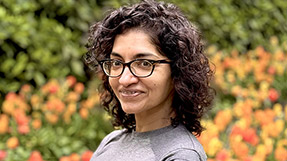
Before joining Northeastern, she was an assistant professor at the School of Informatics and Computing at Indiana University for three years, a research assistant professor at the Toyota Technological Institute at Chicago for three years, and a postdoctoral fellow at Harvard University for two years. She received her doctorate in computer science from Princeton University in 2004.
Ahmed’s research involves programming languages and compiler verification with a focus on type systems, semantics, secure compilation, gradual typing, and software contracts. Her work scaling the logical relations proof method to realistic languages with various features was widely used for the correctness of compiler transformations, soundness of advanced type systems, and verification of fine-grained concurrent data structures. Ahmed recently developed the first proof architecture for verifying multi-pass compilers in the presence of inter-language linking of compiled code.


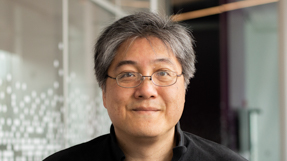
David Bau is an assistant professor at the Khoury College of Computer Sciences at Northeastern University. He earned his bachelor’s in mathematics from Harvard University, master’s in computer science from Cornell University, and PhD in computer science from the Massachusetts Institute of Technology. His research focuses on human-computer interaction and machine learning.
Prior to joining Northeastern, Bau worked as a software engineer at Google, BEA, and Crossgain. He has been published in journals such as CVPR, NeurIPS, ICCV, ECCV, and SIGGRAPH.
Outside of research, he enjoys astronomy and puzzle collecting.


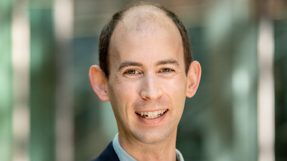
Until 2020, Bell was an assistant professor of computer science at George Mason University. He is broadly interested in automated approaches to help developers write better software. His research is in the software engineering and program analysis space, with some work in improving software testing.


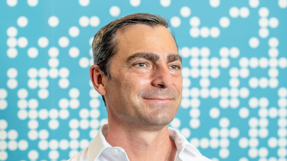
Enrico Bertini is an associate professor at Northeastern University, holding a joint appointment with the College of Arts, Media, and Design and Khoury College of Computer Sciences. Bertini works on data visualization interfaces to help people make sense of the world through data. In recent years, his work has focused on the use of visual interfaces to explore, validate, and understand machine learning models and systems. His research also aims to advance the theoretical and empirical understanding of how people extract information and meaning from visual representations.
In 2006, Bertini earned a doctorate in computer engineering from the University of Rome La Sapienza, in his hometown of Rome. Between 2006-2012, he was a research scientist at the University of Fribourg, Switzerland and at the University of Konstanz, Germany. In 2012, he joined the NYU School of Engineering as an assistant professor; he was promoted to the rank of associate professor in 2018. Bertini is the co-host of Data Stories, a popular podcast series that discusses the role of data in everyday life.


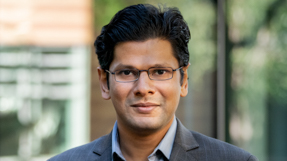
Using the tools and techniques of programming languages, Arjun’s research addresses security and reliability problems in web programming, systems, and robotics. For example, he has a recent research project on serverless computing, which is an approach to cloud computing. The project is developing tools and techniques to make serverless computing more cost-effective, more reliable, and more broadly applicable.
He is a member of the Programming Research Laboratory at Khoury College. In his free time, he enjoys running, cooking, and reading.


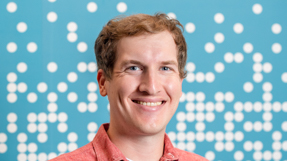
Before joining Khoury College in 2021, Holtzen earned his doctorate in computer science from UCLA, where he worked as a research assistant. At the same time, he served on the technical staff at the cyber data analytics department at Sandia National Laboratories.
Holtzen was named Outstanding Graduating PhD Student by the UCLA Computer Science Department and won the ACM SIGPLAN Distinguished Paper Award at OOPSLA 2020. He has also published recently at UAI, ICML, CAV, and ASPLOS.



With a background in cognitive and neural sciences, Padilla uses evidence-based data visualization techniques to accurately convey uncertainty, helping people to make informed decisions about high-stakes topics like medical treatments and emergency evacuations. Her work evaluates the impact of basic cognitive mechanisms like working memory, attention, perception, and knowledge on how people process data visualizations, as well as the impact of marginalizing factors like low literacy on visualization comprehension. Padilla collaborates with domain experts to develop more effective scientific communication techniques, and she also developed the only visualization decision-making model that integrates modern theories from visualization science, cognitive science, and human–computer interaction. Her publication record includes more than 25 peer-reviewed publications, a government report, two book chapters, an edited book, and seven peer-reviewed conference proceedings, plus honors including an NSF CAREER Award, an IEEE VIS Best Paper Award, and an APA Early Career Award.
When she isn’t visualizing data, Padilla fills her life with another type of visuals; she’s a trained oil painter and an art collector.



Before joining Northeastern in 2021, Savage was a tech worker at Intel Labs and Microsoft Bing, and a crowd research worker at Stanford. She has taught or directed at West Virginia University, Carnegie Mellon University, and the University of Washington, focusing on human-computer interaction or human-centered design each time.
Savage has published in ACM CHI and CSCW, AAAI ICWSM and HCOMP, and the Web Conference; the BCC, The Economist, and the New York Times have covered her work. She is a recipient of grants from the UN and NSF, the Google Anita Borg Scholarship, and MIT Technology Review’s “35 Innovators Under 35” honor. She is also a fellow at the Center for Democracy and Technology, a technical advisor for Mexico’s Ministry of Foreign Affairs, and a member of ACM SIGCHI’s Latin America Committee.


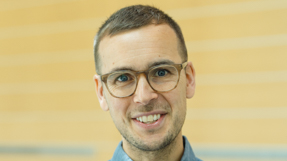
Wallace’s research areas include artificial intelligence, data science, machine learning, natural language processing, and information retrieval, with emphasis on applications in health informatics. Byron is a member of the applied machine learning group and the Data Science and Analytics Lab at Northeastern.
His work has been supported by grants from the Army Research Office, the NIH, and the NSF. He won the Tufts University 2012 Outstanding Graduate Researcher award and his thesis work was recognized as The Runner Up for the 2013 ACM Special Interest Group on Knowledge Discovery and Data Mining (SIG KDD) Dissertation Award. He recently co-authored the winning submission for the Health Care Data Analytics Challenge at the 2015 IEEE International Conference on Healthcare Informatics.


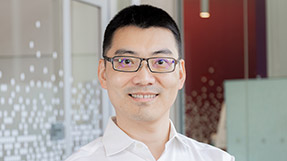
Wang has been the chair of multiple ACM Conferences and Committees and has published in multiple journals and received several awards: “The Goal-oriented Autonomous Dialogue System”, RPI-IBM AI Research Collaboration (PI with Tomek Strzalkowski $125,000) 2022 IBM Corporate Technical Awards on “AutoAI”, IBM. 175/350,000 2021 Outstanding Technical Achievement Award “Leadership in Automating the AI Lifecycle”, IBM Research. 16/260 2020 Outstanding Technical Achievement Award “Author Workbench”, IBM Research. 16/260 2020 “Human-in-the-loop Automated Machine Learning”, MIT-IBM Watson AI Lab (PI with David Karger $150,000) 2019 ACM Conference on Human Factors in Computing Systems (CHI), Early Career Consortium ($2,000) 2017 ACM Conference on Human Factors in Computing Systems (CHI), Doctoral Consortium ($2,000) 2016 ACM Conference on Computer-Supported Cooperative Work (CSCW), Doctoral Consortium ($2,000) 2016 Conference, Doctoral Consortium ($1,500) 2016 Center for Organizational Research Grant ($1,000) 2014 — 2015.
Wang is an ACM Distinguished Speaker and is invited to give 10 talks around the world annually. He also holds more than 60 patents.



Before joining Northeastern, she was an assistant professor at the School of Informatics and Computing at Indiana University for three years, a research assistant professor at the Toyota Technological Institute at Chicago for three years, and a postdoctoral fellow at Harvard University for two years. She received her doctorate in computer science from Princeton University in 2004.
Ahmed’s research involves programming languages and compiler verification with a focus on type systems, semantics, secure compilation, gradual typing, and software contracts. Her work scaling the logical relations proof method to realistic languages with various features was widely used for the correctness of compiler transformations, soundness of advanced type systems, and verification of fine-grained concurrent data structures. Ahmed recently developed the first proof architecture for verifying multi-pass compilers in the presence of inter-language linking of compiled code.



David Bau is an assistant professor at the Khoury College of Computer Sciences at Northeastern University. He earned his bachelor’s in mathematics from Harvard University, master’s in computer science from Cornell University, and PhD in computer science from the Massachusetts Institute of Technology. His research focuses on human-computer interaction and machine learning.
Prior to joining Northeastern, Bau worked as a software engineer at Google, BEA, and Crossgain. He has been published in journals such as CVPR, NeurIPS, ICCV, ECCV, and SIGGRAPH.
Outside of research, he enjoys astronomy and puzzle collecting.



Until 2020, Bell was an assistant professor of computer science at George Mason University. He is broadly interested in automated approaches to help developers write better software. His research is in the software engineering and program analysis space, with some work in improving software testing.



Enrico Bertini is an associate professor at Northeastern University, holding a joint appointment with the College of Arts, Media, and Design and Khoury College of Computer Sciences. Bertini works on data visualization interfaces to help people make sense of the world through data. In recent years, his work has focused on the use of visual interfaces to explore, validate, and understand machine learning models and systems. His research also aims to advance the theoretical and empirical understanding of how people extract information and meaning from visual representations.
In 2006, Bertini earned a doctorate in computer engineering from the University of Rome La Sapienza, in his hometown of Rome. Between 2006-2012, he was a research scientist at the University of Fribourg, Switzerland and at the University of Konstanz, Germany. In 2012, he joined the NYU School of Engineering as an assistant professor; he was promoted to the rank of associate professor in 2018. Bertini is the co-host of Data Stories, a popular podcast series that discusses the role of data in everyday life.



Using the tools and techniques of programming languages, Arjun’s research addresses security and reliability problems in web programming, systems, and robotics. For example, he has a recent research project on serverless computing, which is an approach to cloud computing. The project is developing tools and techniques to make serverless computing more cost-effective, more reliable, and more broadly applicable.
He is a member of the Programming Research Laboratory at Khoury College. In his free time, he enjoys running, cooking, and reading.



Before joining Khoury College in 2021, Holtzen earned his doctorate in computer science from UCLA, where he worked as a research assistant. At the same time, he served on the technical staff at the cyber data analytics department at Sandia National Laboratories.
Holtzen was named Outstanding Graduating PhD Student by the UCLA Computer Science Department and won the ACM SIGPLAN Distinguished Paper Award at OOPSLA 2020. He has also published recently at UAI, ICML, CAV, and ASPLOS.



With a background in cognitive and neural sciences, Padilla uses evidence-based data visualization techniques to accurately convey uncertainty, helping people to make informed decisions about high-stakes topics like medical treatments and emergency evacuations. Her work evaluates the impact of basic cognitive mechanisms like working memory, attention, perception, and knowledge on how people process data visualizations, as well as the impact of marginalizing factors like low literacy on visualization comprehension. Padilla collaborates with domain experts to develop more effective scientific communication techniques, and she also developed the only visualization decision-making model that integrates modern theories from visualization science, cognitive science, and human–computer interaction. Her publication record includes more than 25 peer-reviewed publications, a government report, two book chapters, an edited book, and seven peer-reviewed conference proceedings, plus honors including an NSF CAREER Award, an IEEE VIS Best Paper Award, and an APA Early Career Award.
When she isn’t visualizing data, Padilla fills her life with another type of visuals; she’s a trained oil painter and an art collector.



Before joining Northeastern in 2021, Savage was a tech worker at Intel Labs and Microsoft Bing, and a crowd research worker at Stanford. She has taught or directed at West Virginia University, Carnegie Mellon University, and the University of Washington, focusing on human-computer interaction or human-centered design each time.
Savage has published in ACM CHI and CSCW, AAAI ICWSM and HCOMP, and the Web Conference; the BCC, The Economist, and the New York Times have covered her work. She is a recipient of grants from the UN and NSF, the Google Anita Borg Scholarship, and MIT Technology Review’s “35 Innovators Under 35” honor. She is also a fellow at the Center for Democracy and Technology, a technical advisor for Mexico’s Ministry of Foreign Affairs, and a member of ACM SIGCHI’s Latin America Committee.



Wallace’s research areas include artificial intelligence, data science, machine learning, natural language processing, and information retrieval, with emphasis on applications in health informatics. Byron is a member of the applied machine learning group and the Data Science and Analytics Lab at Northeastern.
His work has been supported by grants from the Army Research Office, the NIH, and the NSF. He won the Tufts University 2012 Outstanding Graduate Researcher award and his thesis work was recognized as The Runner Up for the 2013 ACM Special Interest Group on Knowledge Discovery and Data Mining (SIG KDD) Dissertation Award. He recently co-authored the winning submission for the Health Care Data Analytics Challenge at the 2015 IEEE International Conference on Healthcare Informatics.



Wang has been the chair of multiple ACM Conferences and Committees and has published in multiple journals and received several awards: “The Goal-oriented Autonomous Dialogue System”, RPI-IBM AI Research Collaboration (PI with Tomek Strzalkowski $125,000) 2022 IBM Corporate Technical Awards on “AutoAI”, IBM. 175/350,000 2021 Outstanding Technical Achievement Award “Leadership in Automating the AI Lifecycle”, IBM Research. 16/260 2020 Outstanding Technical Achievement Award “Author Workbench”, IBM Research. 16/260 2020 “Human-in-the-loop Automated Machine Learning”, MIT-IBM Watson AI Lab (PI with David Karger $150,000) 2019 ACM Conference on Human Factors in Computing Systems (CHI), Early Career Consortium ($2,000) 2017 ACM Conference on Human Factors in Computing Systems (CHI), Doctoral Consortium ($2,000) 2016 ACM Conference on Computer-Supported Cooperative Work (CSCW), Doctoral Consortium ($2,000) 2016 Conference, Doctoral Consortium ($1,500) 2016 Center for Organizational Research Grant ($1,000) 2014 — 2015.
Wang is an ACM Distinguished Speaker and is invited to give 10 talks around the world annually. He also holds more than 60 patents.



Before joining Northeastern, she was an assistant professor at the School of Informatics and Computing at Indiana University for three years, a research assistant professor at the Toyota Technological Institute at Chicago for three years, and a postdoctoral fellow at Harvard University for two years. She received her doctorate in computer science from Princeton University in 2004.
Ahmed’s research involves programming languages and compiler verification with a focus on type systems, semantics, secure compilation, gradual typing, and software contracts. Her work scaling the logical relations proof method to realistic languages with various features was widely used for the correctness of compiler transformations, soundness of advanced type systems, and verification of fine-grained concurrent data structures. Ahmed recently developed the first proof architecture for verifying multi-pass compilers in the presence of inter-language linking of compiled code.

David Bau is an assistant professor at the Khoury College of Computer Sciences at Northeastern University. He earned his bachelor’s in mathematics from Harvard University, master’s in computer science from Cornell University, and PhD in computer science from the Massachusetts Institute of Technology. His research focuses on human-computer interaction and machine learning.
Prior to joining Northeastern, Bau worked as a software engineer at Google, BEA, and Crossgain. He has been published in journals such as CVPR, NeurIPS, ICCV, ECCV, and SIGGRAPH.
Outside of research, he enjoys astronomy and puzzle collecting.

Until 2020, Bell was an assistant professor of computer science at George Mason University. He is broadly interested in automated approaches to help developers write better software. His research is in the software engineering and program analysis space, with some work in improving software testing.

Enrico Bertini is an associate professor at Northeastern University, holding a joint appointment with the College of Arts, Media, and Design and Khoury College of Computer Sciences. Bertini works on data visualization interfaces to help people make sense of the world through data. In recent years, his work has focused on the use of visual interfaces to explore, validate, and understand machine learning models and systems. His research also aims to advance the theoretical and empirical understanding of how people extract information and meaning from visual representations.
In 2006, Bertini earned a doctorate in computer engineering from the University of Rome La Sapienza, in his hometown of Rome. Between 2006-2012, he was a research scientist at the University of Fribourg, Switzerland and at the University of Konstanz, Germany. In 2012, he joined the NYU School of Engineering as an assistant professor; he was promoted to the rank of associate professor in 2018. Bertini is the co-host of Data Stories, a popular podcast series that discusses the role of data in everyday life.

Using the tools and techniques of programming languages, Arjun’s research addresses security and reliability problems in web programming, systems, and robotics. For example, he has a recent research project on serverless computing, which is an approach to cloud computing. The project is developing tools and techniques to make serverless computing more cost-effective, more reliable, and more broadly applicable.
He is a member of the Programming Research Laboratory at Khoury College. In his free time, he enjoys running, cooking, and reading.

Before joining Khoury College in 2021, Holtzen earned his doctorate in computer science from UCLA, where he worked as a research assistant. At the same time, he served on the technical staff at the cyber data analytics department at Sandia National Laboratories.
Holtzen was named Outstanding Graduating PhD Student by the UCLA Computer Science Department and won the ACM SIGPLAN Distinguished Paper Award at OOPSLA 2020. He has also published recently at UAI, ICML, CAV, and ASPLOS.

With a background in cognitive and neural sciences, Padilla uses evidence-based data visualization techniques to accurately convey uncertainty, helping people to make informed decisions about high-stakes topics like medical treatments and emergency evacuations. Her work evaluates the impact of basic cognitive mechanisms like working memory, attention, perception, and knowledge on how people process data visualizations, as well as the impact of marginalizing factors like low literacy on visualization comprehension. Padilla collaborates with domain experts to develop more effective scientific communication techniques, and she also developed the only visualization decision-making model that integrates modern theories from visualization science, cognitive science, and human–computer interaction. Her publication record includes more than 25 peer-reviewed publications, a government report, two book chapters, an edited book, and seven peer-reviewed conference proceedings, plus honors including an NSF CAREER Award, an IEEE VIS Best Paper Award, and an APA Early Career Award.
When she isn’t visualizing data, Padilla fills her life with another type of visuals; she’s a trained oil painter and an art collector.

Before joining Northeastern in 2021, Savage was a tech worker at Intel Labs and Microsoft Bing, and a crowd research worker at Stanford. She has taught or directed at West Virginia University, Carnegie Mellon University, and the University of Washington, focusing on human-computer interaction or human-centered design each time.
Savage has published in ACM CHI and CSCW, AAAI ICWSM and HCOMP, and the Web Conference; the BCC, The Economist, and the New York Times have covered her work. She is a recipient of grants from the UN and NSF, the Google Anita Borg Scholarship, and MIT Technology Review’s “35 Innovators Under 35” honor. She is also a fellow at the Center for Democracy and Technology, a technical advisor for Mexico’s Ministry of Foreign Affairs, and a member of ACM SIGCHI’s Latin America Committee.

Wallace’s research areas include artificial intelligence, data science, machine learning, natural language processing, and information retrieval, with emphasis on applications in health informatics. Byron is a member of the applied machine learning group and the Data Science and Analytics Lab at Northeastern.
His work has been supported by grants from the Army Research Office, the NIH, and the NSF. He won the Tufts University 2012 Outstanding Graduate Researcher award and his thesis work was recognized as The Runner Up for the 2013 ACM Special Interest Group on Knowledge Discovery and Data Mining (SIG KDD) Dissertation Award. He recently co-authored the winning submission for the Health Care Data Analytics Challenge at the 2015 IEEE International Conference on Healthcare Informatics.

Wang has been the chair of multiple ACM Conferences and Committees and has published in multiple journals and received several awards: “The Goal-oriented Autonomous Dialogue System”, RPI-IBM AI Research Collaboration (PI with Tomek Strzalkowski $125,000) 2022 IBM Corporate Technical Awards on “AutoAI”, IBM. 175/350,000 2021 Outstanding Technical Achievement Award “Leadership in Automating the AI Lifecycle”, IBM Research. 16/260 2020 Outstanding Technical Achievement Award “Author Workbench”, IBM Research. 16/260 2020 “Human-in-the-loop Automated Machine Learning”, MIT-IBM Watson AI Lab (PI with David Karger $150,000) 2019 ACM Conference on Human Factors in Computing Systems (CHI), Early Career Consortium ($2,000) 2017 ACM Conference on Human Factors in Computing Systems (CHI), Doctoral Consortium ($2,000) 2016 ACM Conference on Computer-Supported Cooperative Work (CSCW), Doctoral Consortium ($2,000) 2016 Conference, Doctoral Consortium ($1,500) 2016 Center for Organizational Research Grant ($1,000) 2014 — 2015.
Wang is an ACM Distinguished Speaker and is invited to give 10 talks around the world annually. He also holds more than 60 patents.

Before joining Northeastern, she was an assistant professor at the School of Informatics and Computing at Indiana University for three years, a research assistant professor at the Toyota Technological Institute at Chicago for three years, and a postdoctoral fellow at Harvard University for two years. She received her doctorate in computer science from Princeton University in 2004.
Ahmed’s research involves programming languages and compiler verification with a focus on type systems, semantics, secure compilation, gradual typing, and software contracts. Her work scaling the logical relations proof method to realistic languages with various features was widely used for the correctness of compiler transformations, soundness of advanced type systems, and verification of fine-grained concurrent data structures. Ahmed recently developed the first proof architecture for verifying multi-pass compilers in the presence of inter-language linking of compiled code.



David Bau is an assistant professor at the Khoury College of Computer Sciences at Northeastern University. He earned his bachelor’s in mathematics from Harvard University, master’s in computer science from Cornell University, and PhD in computer science from the Massachusetts Institute of Technology. His research focuses on human-computer interaction and machine learning.
Prior to joining Northeastern, Bau worked as a software engineer at Google, BEA, and Crossgain. He has been published in journals such as CVPR, NeurIPS, ICCV, ECCV, and SIGGRAPH.
Outside of research, he enjoys astronomy and puzzle collecting.



Until 2020, Bell was an assistant professor of computer science at George Mason University. He is broadly interested in automated approaches to help developers write better software. His research is in the software engineering and program analysis space, with some work in improving software testing.



Enrico Bertini is an associate professor at Northeastern University, holding a joint appointment with the College of Arts, Media, and Design and Khoury College of Computer Sciences. Bertini works on data visualization interfaces to help people make sense of the world through data. In recent years, his work has focused on the use of visual interfaces to explore, validate, and understand machine learning models and systems. His research also aims to advance the theoretical and empirical understanding of how people extract information and meaning from visual representations.
In 2006, Bertini earned a doctorate in computer engineering from the University of Rome La Sapienza, in his hometown of Rome. Between 2006-2012, he was a research scientist at the University of Fribourg, Switzerland and at the University of Konstanz, Germany. In 2012, he joined the NYU School of Engineering as an assistant professor; he was promoted to the rank of associate professor in 2018. Bertini is the co-host of Data Stories, a popular podcast series that discusses the role of data in everyday life.



Using the tools and techniques of programming languages, Arjun’s research addresses security and reliability problems in web programming, systems, and robotics. For example, he has a recent research project on serverless computing, which is an approach to cloud computing. The project is developing tools and techniques to make serverless computing more cost-effective, more reliable, and more broadly applicable.
He is a member of the Programming Research Laboratory at Khoury College. In his free time, he enjoys running, cooking, and reading.



Before joining Khoury College in 2021, Holtzen earned his doctorate in computer science from UCLA, where he worked as a research assistant. At the same time, he served on the technical staff at the cyber data analytics department at Sandia National Laboratories.
Holtzen was named Outstanding Graduating PhD Student by the UCLA Computer Science Department and won the ACM SIGPLAN Distinguished Paper Award at OOPSLA 2020. He has also published recently at UAI, ICML, CAV, and ASPLOS.



With a background in cognitive and neural sciences, Padilla uses evidence-based data visualization techniques to accurately convey uncertainty, helping people to make informed decisions about high-stakes topics like medical treatments and emergency evacuations. Her work evaluates the impact of basic cognitive mechanisms like working memory, attention, perception, and knowledge on how people process data visualizations, as well as the impact of marginalizing factors like low literacy on visualization comprehension. Padilla collaborates with domain experts to develop more effective scientific communication techniques, and she also developed the only visualization decision-making model that integrates modern theories from visualization science, cognitive science, and human–computer interaction. Her publication record includes more than 25 peer-reviewed publications, a government report, two book chapters, an edited book, and seven peer-reviewed conference proceedings, plus honors including an NSF CAREER Award, an IEEE VIS Best Paper Award, and an APA Early Career Award.
When she isn’t visualizing data, Padilla fills her life with another type of visuals; she’s a trained oil painter and an art collector.



Before joining Northeastern in 2021, Savage was a tech worker at Intel Labs and Microsoft Bing, and a crowd research worker at Stanford. She has taught or directed at West Virginia University, Carnegie Mellon University, and the University of Washington, focusing on human-computer interaction or human-centered design each time.
Savage has published in ACM CHI and CSCW, AAAI ICWSM and HCOMP, and the Web Conference; the BCC, The Economist, and the New York Times have covered her work. She is a recipient of grants from the UN and NSF, the Google Anita Borg Scholarship, and MIT Technology Review’s “35 Innovators Under 35” honor. She is also a fellow at the Center for Democracy and Technology, a technical advisor for Mexico’s Ministry of Foreign Affairs, and a member of ACM SIGCHI’s Latin America Committee.



Wallace’s research areas include artificial intelligence, data science, machine learning, natural language processing, and information retrieval, with emphasis on applications in health informatics. Byron is a member of the applied machine learning group and the Data Science and Analytics Lab at Northeastern.
His work has been supported by grants from the Army Research Office, the NIH, and the NSF. He won the Tufts University 2012 Outstanding Graduate Researcher award and his thesis work was recognized as The Runner Up for the 2013 ACM Special Interest Group on Knowledge Discovery and Data Mining (SIG KDD) Dissertation Award. He recently co-authored the winning submission for the Health Care Data Analytics Challenge at the 2015 IEEE International Conference on Healthcare Informatics.



Wang has been the chair of multiple ACM Conferences and Committees and has published in multiple journals and received several awards: “The Goal-oriented Autonomous Dialogue System”, RPI-IBM AI Research Collaboration (PI with Tomek Strzalkowski $125,000) 2022 IBM Corporate Technical Awards on “AutoAI”, IBM. 175/350,000 2021 Outstanding Technical Achievement Award “Leadership in Automating the AI Lifecycle”, IBM Research. 16/260 2020 Outstanding Technical Achievement Award “Author Workbench”, IBM Research. 16/260 2020 “Human-in-the-loop Automated Machine Learning”, MIT-IBM Watson AI Lab (PI with David Karger $150,000) 2019 ACM Conference on Human Factors in Computing Systems (CHI), Early Career Consortium ($2,000) 2017 ACM Conference on Human Factors in Computing Systems (CHI), Doctoral Consortium ($2,000) 2016 ACM Conference on Computer-Supported Cooperative Work (CSCW), Doctoral Consortium ($2,000) 2016 Conference, Doctoral Consortium ($1,500) 2016 Center for Organizational Research Grant ($1,000) 2014 — 2015.
Wang is an ACM Distinguished Speaker and is invited to give 10 talks around the world annually. He also holds more than 60 patents.



Before joining Northeastern, she was an assistant professor at the School of Informatics and Computing at Indiana University for three years, a research assistant professor at the Toyota Technological Institute at Chicago for three years, and a postdoctoral fellow at Harvard University for two years. She received her doctorate in computer science from Princeton University in 2004.
Ahmed’s research involves programming languages and compiler verification with a focus on type systems, semantics, secure compilation, gradual typing, and software contracts. Her work scaling the logical relations proof method to realistic languages with various features was widely used for the correctness of compiler transformations, soundness of advanced type systems, and verification of fine-grained concurrent data structures. Ahmed recently developed the first proof architecture for verifying multi-pass compilers in the presence of inter-language linking of compiled code.



David Bau is an assistant professor at the Khoury College of Computer Sciences at Northeastern University. He earned his bachelor’s in mathematics from Harvard University, master’s in computer science from Cornell University, and PhD in computer science from the Massachusetts Institute of Technology. His research focuses on human-computer interaction and machine learning.
Prior to joining Northeastern, Bau worked as a software engineer at Google, BEA, and Crossgain. He has been published in journals such as CVPR, NeurIPS, ICCV, ECCV, and SIGGRAPH.
Outside of research, he enjoys astronomy and puzzle collecting.



Until 2020, Bell was an assistant professor of computer science at George Mason University. He is broadly interested in automated approaches to help developers write better software. His research is in the software engineering and program analysis space, with some work in improving software testing.



Enrico Bertini is an associate professor at Northeastern University, holding a joint appointment with the College of Arts, Media, and Design and Khoury College of Computer Sciences. Bertini works on data visualization interfaces to help people make sense of the world through data. In recent years, his work has focused on the use of visual interfaces to explore, validate, and understand machine learning models and systems. His research also aims to advance the theoretical and empirical understanding of how people extract information and meaning from visual representations.
In 2006, Bertini earned a doctorate in computer engineering from the University of Rome La Sapienza, in his hometown of Rome. Between 2006-2012, he was a research scientist at the University of Fribourg, Switzerland and at the University of Konstanz, Germany. In 2012, he joined the NYU School of Engineering as an assistant professor; he was promoted to the rank of associate professor in 2018. Bertini is the co-host of Data Stories, a popular podcast series that discusses the role of data in everyday life.



Using the tools and techniques of programming languages, Arjun’s research addresses security and reliability problems in web programming, systems, and robotics. For example, he has a recent research project on serverless computing, which is an approach to cloud computing. The project is developing tools and techniques to make serverless computing more cost-effective, more reliable, and more broadly applicable.
He is a member of the Programming Research Laboratory at Khoury College. In his free time, he enjoys running, cooking, and reading.



Before joining Khoury College in 2021, Holtzen earned his doctorate in computer science from UCLA, where he worked as a research assistant. At the same time, he served on the technical staff at the cyber data analytics department at Sandia National Laboratories.
Holtzen was named Outstanding Graduating PhD Student by the UCLA Computer Science Department and won the ACM SIGPLAN Distinguished Paper Award at OOPSLA 2020. He has also published recently at UAI, ICML, CAV, and ASPLOS.



With a background in cognitive and neural sciences, Padilla uses evidence-based data visualization techniques to accurately convey uncertainty, helping people to make informed decisions about high-stakes topics like medical treatments and emergency evacuations. Her work evaluates the impact of basic cognitive mechanisms like working memory, attention, perception, and knowledge on how people process data visualizations, as well as the impact of marginalizing factors like low literacy on visualization comprehension. Padilla collaborates with domain experts to develop more effective scientific communication techniques, and she also developed the only visualization decision-making model that integrates modern theories from visualization science, cognitive science, and human–computer interaction. Her publication record includes more than 25 peer-reviewed publications, a government report, two book chapters, an edited book, and seven peer-reviewed conference proceedings, plus honors including an NSF CAREER Award, an IEEE VIS Best Paper Award, and an APA Early Career Award.
When she isn’t visualizing data, Padilla fills her life with another type of visuals; she’s a trained oil painter and an art collector.



Before joining Northeastern in 2021, Savage was a tech worker at Intel Labs and Microsoft Bing, and a crowd research worker at Stanford. She has taught or directed at West Virginia University, Carnegie Mellon University, and the University of Washington, focusing on human-computer interaction or human-centered design each time.
Savage has published in ACM CHI and CSCW, AAAI ICWSM and HCOMP, and the Web Conference; the BCC, The Economist, and the New York Times have covered her work. She is a recipient of grants from the UN and NSF, the Google Anita Borg Scholarship, and MIT Technology Review’s “35 Innovators Under 35” honor. She is also a fellow at the Center for Democracy and Technology, a technical advisor for Mexico’s Ministry of Foreign Affairs, and a member of ACM SIGCHI’s Latin America Committee.



Wallace’s research areas include artificial intelligence, data science, machine learning, natural language processing, and information retrieval, with emphasis on applications in health informatics. Byron is a member of the applied machine learning group and the Data Science and Analytics Lab at Northeastern.
His work has been supported by grants from the Army Research Office, the NIH, and the NSF. He won the Tufts University 2012 Outstanding Graduate Researcher award and his thesis work was recognized as The Runner Up for the 2013 ACM Special Interest Group on Knowledge Discovery and Data Mining (SIG KDD) Dissertation Award. He recently co-authored the winning submission for the Health Care Data Analytics Challenge at the 2015 IEEE International Conference on Healthcare Informatics.



Wang has been the chair of multiple ACM Conferences and Committees and has published in multiple journals and received several awards: “The Goal-oriented Autonomous Dialogue System”, RPI-IBM AI Research Collaboration (PI with Tomek Strzalkowski $125,000) 2022 IBM Corporate Technical Awards on “AutoAI”, IBM. 175/350,000 2021 Outstanding Technical Achievement Award “Leadership in Automating the AI Lifecycle”, IBM Research. 16/260 2020 Outstanding Technical Achievement Award “Author Workbench”, IBM Research. 16/260 2020 “Human-in-the-loop Automated Machine Learning”, MIT-IBM Watson AI Lab (PI with David Karger $150,000) 2019 ACM Conference on Human Factors in Computing Systems (CHI), Early Career Consortium ($2,000) 2017 ACM Conference on Human Factors in Computing Systems (CHI), Doctoral Consortium ($2,000) 2016 ACM Conference on Computer-Supported Cooperative Work (CSCW), Doctoral Consortium ($2,000) 2016 Conference, Doctoral Consortium ($1,500) 2016 Center for Organizational Research Grant ($1,000) 2014 — 2015.
Wang is an ACM Distinguished Speaker and is invited to give 10 talks around the world annually. He also holds more than 60 patents.



Before joining Northeastern, she was an assistant professor at the School of Informatics and Computing at Indiana University for three years, a research assistant professor at the Toyota Technological Institute at Chicago for three years, and a postdoctoral fellow at Harvard University for two years. She received her doctorate in computer science from Princeton University in 2004.
Ahmed’s research involves programming languages and compiler verification with a focus on type systems, semantics, secure compilation, gradual typing, and software contracts. Her work scaling the logical relations proof method to realistic languages with various features was widely used for the correctness of compiler transformations, soundness of advanced type systems, and verification of fine-grained concurrent data structures. Ahmed recently developed the first proof architecture for verifying multi-pass compilers in the presence of inter-language linking of compiled code.

David Bau is an assistant professor at the Khoury College of Computer Sciences at Northeastern University. He earned his bachelor’s in mathematics from Harvard University, master’s in computer science from Cornell University, and PhD in computer science from the Massachusetts Institute of Technology. His research focuses on human-computer interaction and machine learning.
Prior to joining Northeastern, Bau worked as a software engineer at Google, BEA, and Crossgain. He has been published in journals such as CVPR, NeurIPS, ICCV, ECCV, and SIGGRAPH.
Outside of research, he enjoys astronomy and puzzle collecting.

Until 2020, Bell was an assistant professor of computer science at George Mason University. He is broadly interested in automated approaches to help developers write better software. His research is in the software engineering and program analysis space, with some work in improving software testing.

Enrico Bertini is an associate professor at Northeastern University, holding a joint appointment with the College of Arts, Media, and Design and Khoury College of Computer Sciences. Bertini works on data visualization interfaces to help people make sense of the world through data. In recent years, his work has focused on the use of visual interfaces to explore, validate, and understand machine learning models and systems. His research also aims to advance the theoretical and empirical understanding of how people extract information and meaning from visual representations.
In 2006, Bertini earned a doctorate in computer engineering from the University of Rome La Sapienza, in his hometown of Rome. Between 2006-2012, he was a research scientist at the University of Fribourg, Switzerland and at the University of Konstanz, Germany. In 2012, he joined the NYU School of Engineering as an assistant professor; he was promoted to the rank of associate professor in 2018. Bertini is the co-host of Data Stories, a popular podcast series that discusses the role of data in everyday life.

Using the tools and techniques of programming languages, Arjun’s research addresses security and reliability problems in web programming, systems, and robotics. For example, he has a recent research project on serverless computing, which is an approach to cloud computing. The project is developing tools and techniques to make serverless computing more cost-effective, more reliable, and more broadly applicable.
He is a member of the Programming Research Laboratory at Khoury College. In his free time, he enjoys running, cooking, and reading.

Before joining Khoury College in 2021, Holtzen earned his doctorate in computer science from UCLA, where he worked as a research assistant. At the same time, he served on the technical staff at the cyber data analytics department at Sandia National Laboratories.
Holtzen was named Outstanding Graduating PhD Student by the UCLA Computer Science Department and won the ACM SIGPLAN Distinguished Paper Award at OOPSLA 2020. He has also published recently at UAI, ICML, CAV, and ASPLOS.

With a background in cognitive and neural sciences, Padilla uses evidence-based data visualization techniques to accurately convey uncertainty, helping people to make informed decisions about high-stakes topics like medical treatments and emergency evacuations. Her work evaluates the impact of basic cognitive mechanisms like working memory, attention, perception, and knowledge on how people process data visualizations, as well as the impact of marginalizing factors like low literacy on visualization comprehension. Padilla collaborates with domain experts to develop more effective scientific communication techniques, and she also developed the only visualization decision-making model that integrates modern theories from visualization science, cognitive science, and human–computer interaction. Her publication record includes more than 25 peer-reviewed publications, a government report, two book chapters, an edited book, and seven peer-reviewed conference proceedings, plus honors including an NSF CAREER Award, an IEEE VIS Best Paper Award, and an APA Early Career Award.
When she isn’t visualizing data, Padilla fills her life with another type of visuals; she’s a trained oil painter and an art collector.

Before joining Northeastern in 2021, Savage was a tech worker at Intel Labs and Microsoft Bing, and a crowd research worker at Stanford. She has taught or directed at West Virginia University, Carnegie Mellon University, and the University of Washington, focusing on human-computer interaction or human-centered design each time.
Savage has published in ACM CHI and CSCW, AAAI ICWSM and HCOMP, and the Web Conference; the BCC, The Economist, and the New York Times have covered her work. She is a recipient of grants from the UN and NSF, the Google Anita Borg Scholarship, and MIT Technology Review’s “35 Innovators Under 35” honor. She is also a fellow at the Center for Democracy and Technology, a technical advisor for Mexico’s Ministry of Foreign Affairs, and a member of ACM SIGCHI’s Latin America Committee.

Wallace’s research areas include artificial intelligence, data science, machine learning, natural language processing, and information retrieval, with emphasis on applications in health informatics. Byron is a member of the applied machine learning group and the Data Science and Analytics Lab at Northeastern.
His work has been supported by grants from the Army Research Office, the NIH, and the NSF. He won the Tufts University 2012 Outstanding Graduate Researcher award and his thesis work was recognized as The Runner Up for the 2013 ACM Special Interest Group on Knowledge Discovery and Data Mining (SIG KDD) Dissertation Award. He recently co-authored the winning submission for the Health Care Data Analytics Challenge at the 2015 IEEE International Conference on Healthcare Informatics.

Wang has been the chair of multiple ACM Conferences and Committees and has published in multiple journals and received several awards: “The Goal-oriented Autonomous Dialogue System”, RPI-IBM AI Research Collaboration (PI with Tomek Strzalkowski $125,000) 2022 IBM Corporate Technical Awards on “AutoAI”, IBM. 175/350,000 2021 Outstanding Technical Achievement Award “Leadership in Automating the AI Lifecycle”, IBM Research. 16/260 2020 Outstanding Technical Achievement Award “Author Workbench”, IBM Research. 16/260 2020 “Human-in-the-loop Automated Machine Learning”, MIT-IBM Watson AI Lab (PI with David Karger $150,000) 2019 ACM Conference on Human Factors in Computing Systems (CHI), Early Career Consortium ($2,000) 2017 ACM Conference on Human Factors in Computing Systems (CHI), Doctoral Consortium ($2,000) 2016 ACM Conference on Computer-Supported Cooperative Work (CSCW), Doctoral Consortium ($2,000) 2016 Conference, Doctoral Consortium ($1,500) 2016 Center for Organizational Research Grant ($1,000) 2014 — 2015.
Wang is an ACM Distinguished Speaker and is invited to give 10 talks around the world annually. He also holds more than 60 patents.